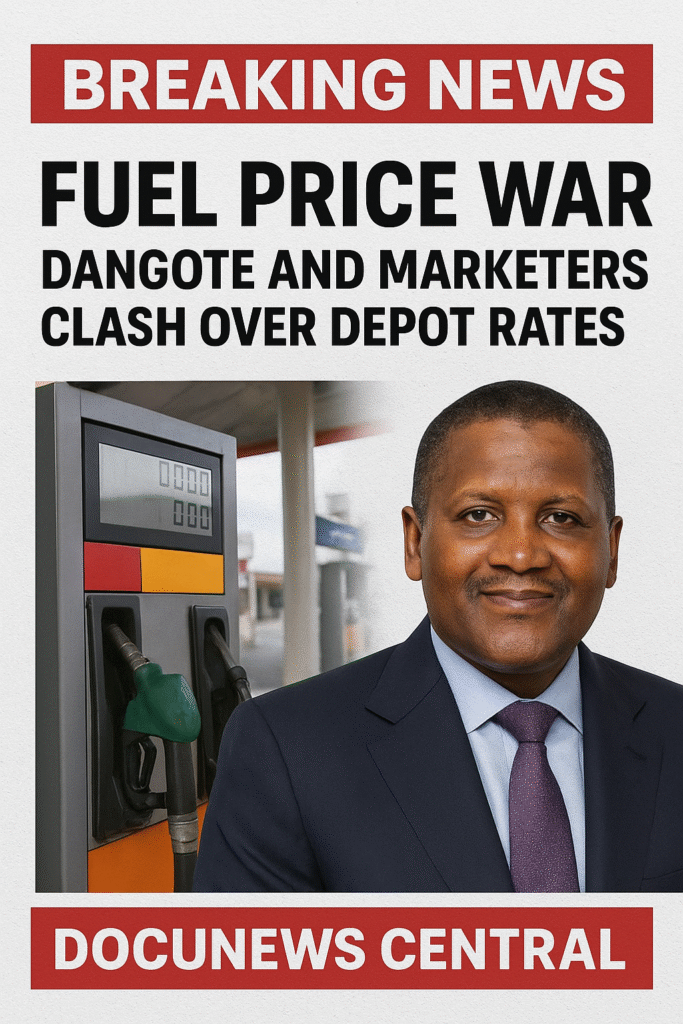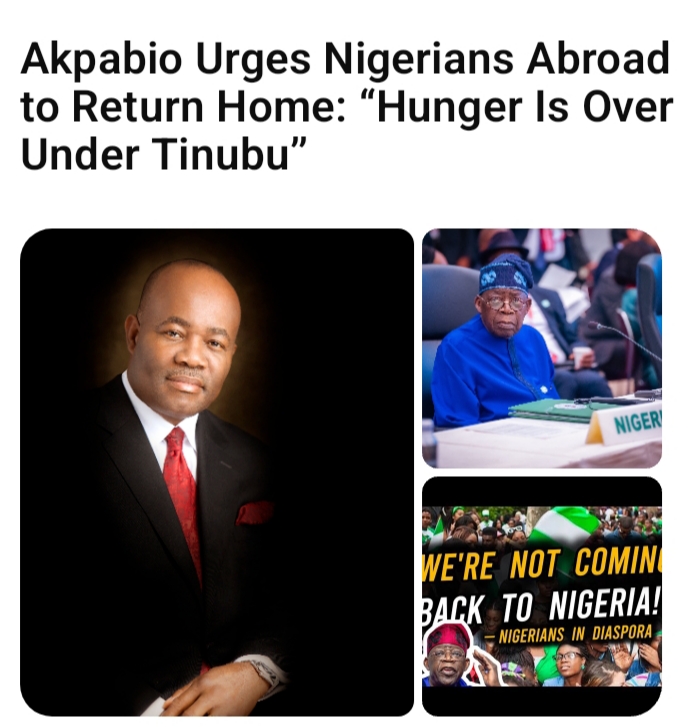
Fuel Price War: Dangote and Marketers Clash Over Depot Rates
Filling stations may soon change pump prices as a new price battle starts between Dangote Refinery and fuel importers.
A New War in the Fuel Market
A fresh storm is blowing in Nigeria’s fuel market. Dangote Refinery, the giant plant built by Africa’s richest man, and independent fuel marketers are now locked in a price battle.
The fight is simple: who will sell cheaper fuel to win the hearts of Nigerians?
Reports show that some private importers, such as Aiteo and Menj, have cut their depot prices to about ₦815 per litre. They want to pull buyers away from Dangote. On the other side, Dangote Refinery, which had earlier sold petrol at ₦820, has now set its own price at ₦850.
This move has shocked many, because it was expected that Dangote would keep prices low to remain the main supplier.
Why Are They Fighting?
This fight is not about fuel alone. It is about control.
For years, Nigeria has depended on imported petrol, costing the country billions of dollars. When Dangote Refinery started fuel sales this year, many thought it would end importation and bring down costs. At first, Dangote’s price was competitive. But now, with the price raised, importers see a chance to win back customers.
By cutting their depot price below Dangote’s, they are challenging the refinery’s hold on the market.
What Does It Mean for Nigerians?
This is the big question on everyone’s lips.
For ordinary people, what matters most is the pump price. If filling stations can buy fuel cheaper at the depots, they may sell it cheaper at the pump. That could bring some relief to drivers, transport workers, and millions who depend on fuel every day.
But experts warn it may not happen at once. Depot price wars do not always translate to quick pump changes. Some stations may wait to see how the battle plays out. Others may keep old prices to make more profit before adjusting.
Still, the hope is clear: if this fight continues, the consumer may benefit.
Voices From the Streets
At a busy filling station in Lagos, motorists expressed mixed feelings.
“I just want fuel to be cheaper,” said Bayo, a taxi driver. “If Dangote and marketers want to fight, let them fight. But let us see the price drop.”
Grace, a trader, worried about instability. “If prices keep changing, we don’t know what to expect. Transport fares rise and fall. It affects everything we sell in the market.”
Government Watching Closely
The Nigerian government is also paying attention. Fuel pricing has always been a sensitive topic. Every shift in price can spark protests, anger, or hope. Officials want stability, but they also welcome competition if it leads to lower costs.
Analysts believe the battle could force the government to step in if things get chaotic.
What Happens Next?
Right now, filling stations are watching the depots. If they see real cuts in supply prices, they will likely adjust pump meters in the coming days.
But no one can say how long the price war will last. Will Dangote drop his price again to win back customers? Or will importers keep undercutting him until they push him into another move?
Only time will tell.
The Bigger Picture
Nigeria’s fuel story is a long one. Decades of importation, subsidy struggles, and refinery failures have left the country at the mercy of global oil traders. Dangote Refinery was seen as the answer to all these problems.
Now, with this price war, Nigerians are learning that even local refining does not end the game of supply and demand. In fact, it may create new battles.
For now, one truth remains: the market is alive, and competition is fierce.
Final Word
Nigerians are watching the pumps closely. Every kobo matters.
The clash between Dangote and fuel marketers is not just a business story. It is a human story. It affects the cost of transport, the price of food, and the daily life of millions.
As the war plays out, the hope is simple: that ordinary people will finally see some relief in their wallets.
📰 DocuNews Central – bringing you real stories in simple words.








